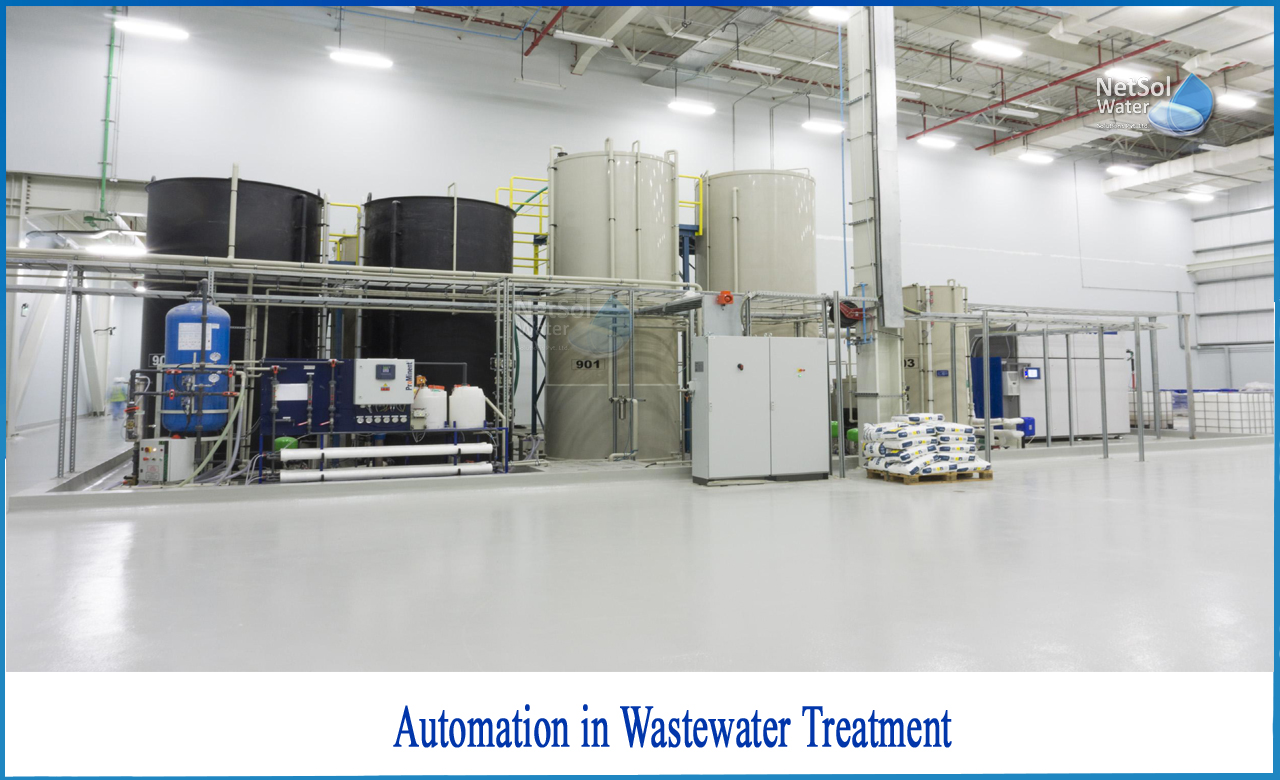What is the benefit of Automated Wastewater Treatment?
Traditional water treatment systems have been based on static principles with large safety margins. New economic incentives, paired with developments in sensor and computer technology, as well as enhanced process knowledge, have made it possible to design and operate dynamic systems. Large changes should be handled in smaller doses, but with more sophisticated management and operation. The system's robustness will be given via automation, which will ensure good quality on a consistent basis.
The use of automation in wastewater treatment operations can be divided into two categories:
1. Information gathering and analysis
2. Control of the process
5 benefits of automated wastewater treatment
1. Improved data accessibility: The treatment of wastewater is always a data-driven process. Automated water systems are supported by a network of dependable data-collection equipment. These devices provide real-time data on the quality of the water and the performance of the apparatus.To better store and analyse plant data, many automated water software platforms include their own advanced analytics software, which may include cutting-edge technologies such as big data and artificial intelligence.
2. Expanding the treatment capacity: It's feasible to optimise plant processes in fundamentally new ways with access to detailed and minute-by-minute plan data. Automated wastewater treatment systems can improve the amount of water that can be treated by minimising the amount of labour required of water treatment staff and increasing plant efficiency.
3. Bringing outdated systems up to date: Automated systems are frequently intended to interact with existing technology and offer plant managers with more information about which equipment is operating and which is not. As a result, managers can use these tools to deliberately update plants that rely on legacy systems.
4. Reduced plant energy and chemical consumption: Energy consumption is one of the most expensive aspects of any wastewater treatment system. Traditional system upgrade enhancements can help reduce costs, save money, but they don't address and solve the issues caused byproblems that arise from a lack of data regarding plant equipment and processes. Automated treatment systems can help a facility save money by reducing the amount of electricity and water treatment chemicals it uses on a daily basis.
Similarly, these automated systems can lower water loss during the treatment process, saving money for facilities and their operators.
Automated systems can help reduce the amount of overflows at a facility by allowing plant workers to access equipment and switches remotely in the event of a flood. During flooding, it's often impossible for plant employees to get to the plant promptly or stay on-site. Workers are unable to control water flow into the water treatment facility as a result, which can lead to costly and environmentally hazardous overflows. Plant workers could remotely regulate plant flow with automated devices, lowering the chance of an overflow.
5. Maintenance and predictive diagnostics: Predictive maintenance technologies and procedures were first used in industry and manufacturing to equip plant machines and equipment with monitors that allow them to properly monitor themselves. These sensors monitor vital operating data such as internal pressure, water flow rate, and temperature in order to warn plant management of damage, wear, or impending equipment failure.
This forewarning can allow administrators and managers to arrange repairs before the problem arises, saving money on downtime or system replacement.
Some systems can even employ electrical management to automatically shut down activities that are about to fail, potentially saving money and time in the long run. Automated systems are also made to work with both old and new wastewater treatment technology. They can be used in plants where older gear needs to be monitored as well as newer, untested technology.
Conclusion
Treatment plants will be more efficient than ever before thanks to automated wastewater treatment technology.
Plant managers can benefit from remote monitoring, improved data, a more efficient process, and access to predictive maintenance techniques with these systems. Automated methods could also be used to upgrade old equipment and infrastructure that is showing signs of wear and tear and will need to be replaced soon.
Netsol Water is Greater Noida-based leading water & wastewater treatment plant manufacturer. We are industry's most demanding company based on client review and work quality. We are known as best commercial RO plant manufacturers, industrial RO plant manufacturer, sewage treatment plant manufacturer, Water Softener Plant Manufacturers and effluent treatment plant manufacturers. Apart from this 24x7 customer support is our USP. Call on +91-9650608473, or write us at enquiry@netsolwater.com for any support, inquiry or product-purchase related query.



